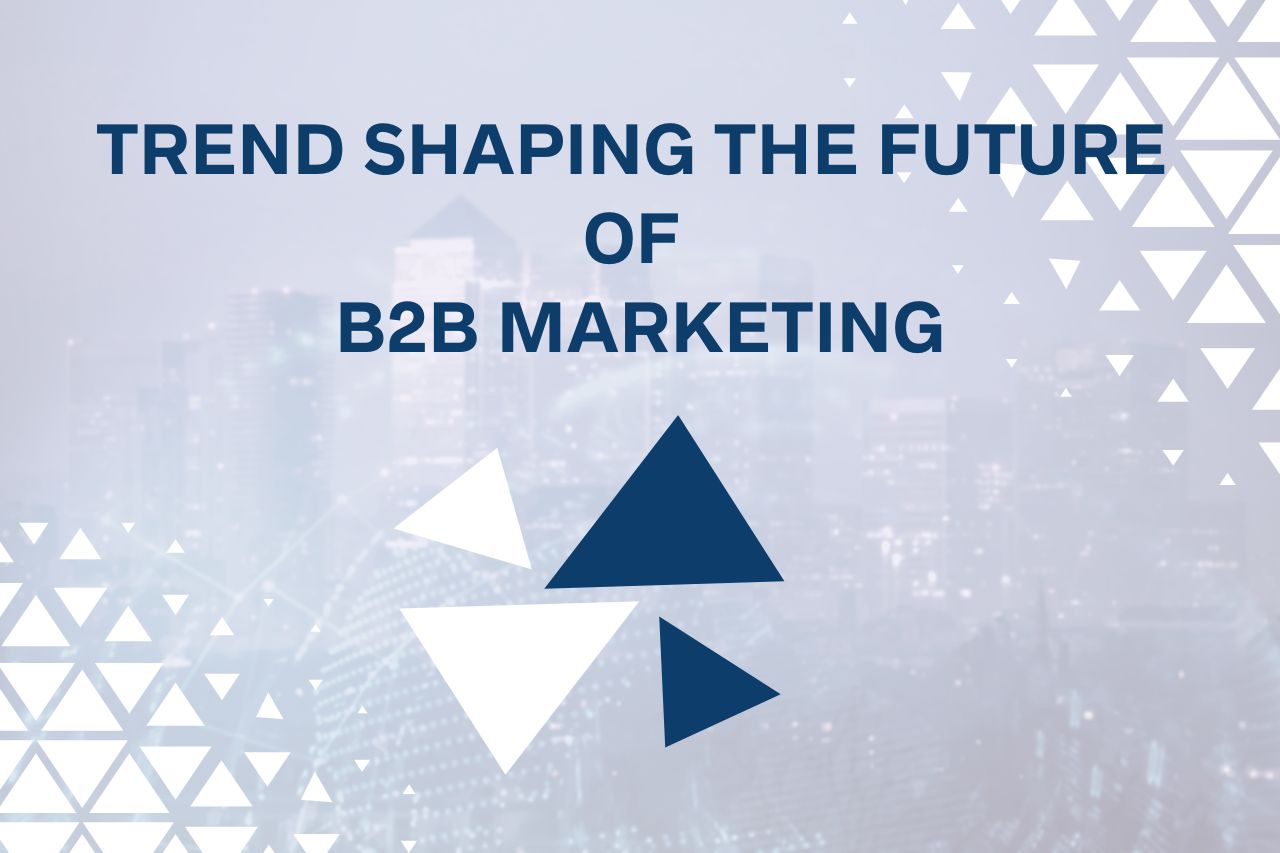

The B2B marketing landscape is constantly evolving. B2B marketers are faced with the need to constantly update and reinvent themselves to meet the needs of their buyers more efficiently. Customer experience is set to become more critical in the future, say 86% of CMOs in the B2B industry. Businesses delivering positive customer experiences, all round, from sales to after-sales, will witness a 5%-10% increase in revenue. (Statistics via Finances Online)
With 61% of transactions in the B2B landscape starting online, the role of digital technology will be even more significant. Technology will play a crucial role in enhancing conventional b2b marketing strategies, including content marketing, email marketing, and ABM. (Statistics via Finances Online )
Marketers will need a powerful combination of data, expertise and technology to reach their buyers faster and differentiate their brand. Given here are some trends set to shape the future of B2B marketing. An awareness of these trends will enable marketers to leverage opportunities and maximize their marketing success.
In 2020, only 10% of people worldwide had legal protection for their personal data. In 2023, this statistic rose to 65% of people worldwide. It is estimated that modern laws will protect the privacy of the personal data of 75% of people globally.
In a McKinsey survey, 87% of consumers said they would stay away from companies whose security practices raise their concerns. 71% said that they would cease to do business with businesses that share their personal data unpermitted.
Given the rise in consumer awareness regarding data privacy and compliance, the way businesses handle data has become more important than ever. Businesses will have to make their data collection more transparent to build trust and credibility.
Businesses currently rely on four sources for data collection:
Businesses must ensure stringent privacy compliance across all sources of data. In addition to implementing strong internal policies, organizations must prioritize data compliance when partnering with data vendors.
Email marketing is the most efficient strategy for delivering top-of-the-funnel (ToFU) goals for 43% of b2b marketers in the U.S. (Via EMARKETER)
Email marketing is integral to an organization’s marketing strategy given the channel’s cost-efficiency, high scope for personalization, and impressive ROI. Email marketing enables you to nurture leads, strengthen buyer relationships, and stay active in your audience’s minds.
Emails still remain a trend shaping B2B’s future but with some twists:
Marketing automation involves the use of technology, mostly software, to execute specific repetitive tasks. Lead nurturing is a marketing activity that employs automation where select prospects are engaged with personalized content at regular intervals.
Marketers find automation utmost beneficial for enhancing lead generation and nurturing, optimal budget and staff utilization, and delivering better customer experiences. The revenue of global marketing automation is expected to reach more than $8 billion (USD) in 2024. The annual increase in revenue will be more than 160%, amounting to $21.7 billion, by 2032.
However; challenges exist in the effective implementation of automation. The Dearth of internal expertise, an inability to unify data from different sources, and poor data quality remain key challenges for marketers.
With customer needs and preferences changing rapidly, marketing on the basis of past data models is futile. Data-driven marketing offers a real-time view of buyers’ needs, enabling marketers to tailor their offerings accordingly.
The future of data-driven marketing holds the evolution of capabilities for even deeper and faster data processing and analyses to capture insights, patterns and shifts. This helps render a buyer experience where needs are predicted and met even before they become pain points.
Organizations that employ data-driven marketing are more likely to earn 6x more profits annually- an interesting statistic that increases the significance and essentiality of this strategy. (via Business 2 Community)
The ability to capture real-time data, access to hygienic data, and expert data analyses are key to making data-driven marketing work. The need of the hour is access to advanced data systems and data expertise to process voluminous data and capture transformative insights with speed and precision.
Research shows that ABM adoption resulted in enhanced relationships with target accounts for 71% of B2B companies. 55% of companies witnessed an increase in revenue, and 34% saw an improvement in brand reputation.
Success with ABM is due to the fact that this approach does not focus on more leads, but on targeted and qualified leads. The base for ABM is data, which drives relevant quality rather than irrelevant quantity.
The advancement in marketing technology is set to make ABM ultra-efficient. With appropriate technology integration, marketers can enhance the precision of their targeting and create more interactive engagement.
However; there are major challenges preventing marketers from utilizing ABM at its peak potential. Data integration for a single unified view, hyper-personalized content, ethical data practices, and intent data aggregation and analyses are some key challenges.
Embracing these key B2B trends is essential to stay on the same page as your buyers and emerge a differential brand. Relying solely on internal sources to prepare your organization for the changes ahead may not yield transformative results. A better alternative would be to empower your business with partners that bring in the essential expertise and infrastructure.
Research shows that external agencies were responsible for 35% of yearly revenues for 60% of companies. Marketers also report gaining customer insights through third-party data (via Business2Community). Choosing the right partner that aligns with your values and goals is the way forward for lasting growth.
FinalFunnel is a b2b marketing company focusing on delivering b2b demand generation solutions through data-driven strategies. Our solutions revolve around expert data interpretations, meaningful content personalization, and smart automation. Our b2b demand generation services include ABM, content syndication, interactive email marketing, and data enrichment and management.
Regarded as the best b2b demand generation company by our clients, we operate globally with a customer-centric approach. Ethical conduct, a collaborative and innovative approach, a resilient business perspective, and transparency, drive clients’ trust and credibility in our brand.
Connect with us to discover more about our solutions.